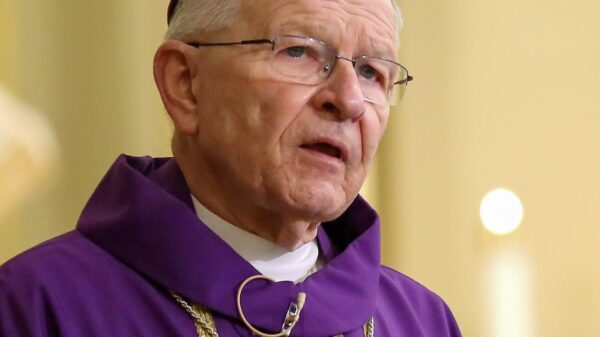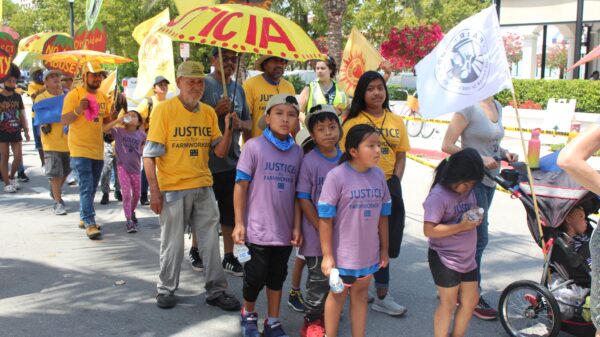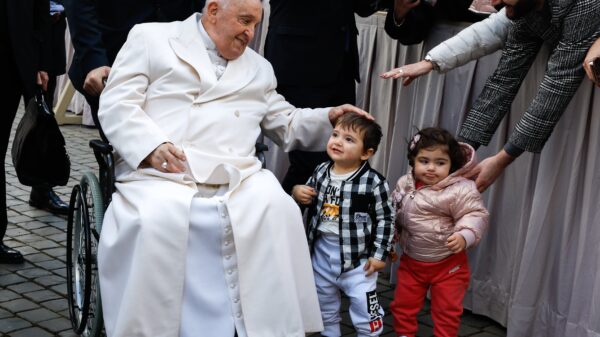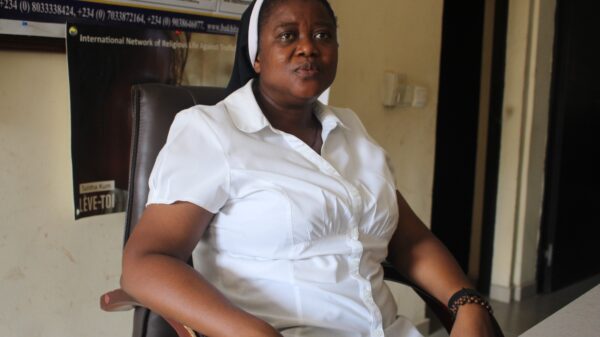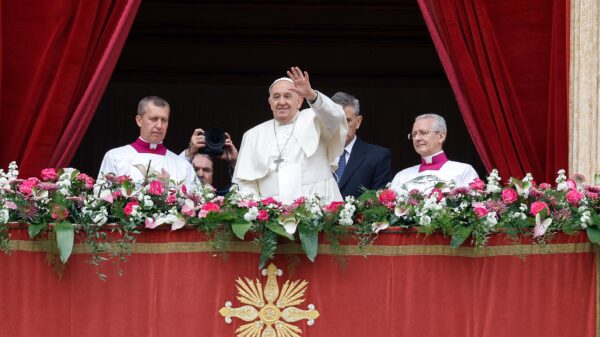VATICAN CITY (CNS) — Catholics should make an “examination of conscience” about how they use social media, how they allow it to influence them and about the opportunities it provides them to share the Gospel, build community and care for others, said the Vatican Dicastery for Communication.
“Unfortunately, the tendency to get carried away in heated and sometimes disrespectful discussions is common with online exchanges,” said the dicastery’s document, “Toward Full Presence. A Pastoral Reflection on Engagement with Social Media.”
“The problem of polemical and superficial, and thus divisive, communication is particularly worrying when it comes from church leadership: bishops, pastors and prominent lay leaders,” the document said. “These not only cause division in the community but also give permission and legitimacy for others likewise to promote similar type of communication.”
Signed by Paolo Ruffini, prefect of the dicastery, and Msgr. Lucio A. Ruiz, secretary of the office, the document was released at a news conference May 29.
When faced with erroneous or divisive content on social media, the document said, “often the best course of action is not to react, or to react with silence so as not to dignify this false dynamic.”
Asked if there was not something more active the dicastery could do, for example, with a bishop acting badly on social media, Ruffini responded that it is not the competency of his office to discipline anyone, but in general on social media it is better not to share or comment on offensive content since it only raises its profile.
Xavière Missionary Sister Nathalie Becquart, undersecretary of the Synod of Bishops, a member of the dicastery, said everyone in the church needs to be educated about social media and learn to discern “when to speak and when not to speak.”
While the document argued for the need for Catholics to sometimes take a break from social media to pray, reflect and spend time with others in person, it recognized social media as a vehicle for sharing Gospel values and as daily part of life for millions of people around the world, including many people in developing nations whose only digital access is to social media.
But it also called on Catholics to be fully informed about its pitfalls and recognize that companies claim their platforms were designed “to bring the world closer together, to give everyone the power to create and share ideas, or to give everyone a voice,” when, in fact, they are businesses that make money by using an individual’s posts to target advertising to them and by selling their profiles and data.
The document quoted an adage that says, “‘If you are not paying for it, you are the product.’ In other words, it is not free: we are paying with minutes of our attention and bytes of our data.”
People also must be aware, it said, that the history of who they follow, what they look at and what they search for feed into algorithms that increasingly narrow the posts, search results and advertising they receive.
“The consequence of this increasingly sophisticated personalization of results is a forced exposure to partial information, which corroborates our own ideas, reinforces our beliefs, and thus leads us into an isolation of ‘filter bubbles,'” the document said.
The dicastery called on Catholics to burst those bubbles by purposefully expanding their sources of information and by trying to understand people with whom they have differences.
The growing sophistication of artificial intelligence, fake news and “deep fake” images and videos also require education and a critical look at what people find online, the document said.
Asked, for example, about the AI-generated photo of Pope Francis in a puffy white jacket and jeweled crucifix that went viral in March, Msgr. Ruiz told reporters that the dicastery is studying ways to give people “the resources to know when they are seeing a real photo, real video or real audio of the Holy Father and not something else.”
In calling Catholics to make an “examination of conscience” about their use of social media, the document said that self-examination should start with how it impacts “three vital relationships: with God, our neighbor and the environment around us.”
With the document, the dicastery launched a website — fullypresent.website — where people can download the document, find a study guide to it and join a “community of faith communicators” to reflect and share best practices.


